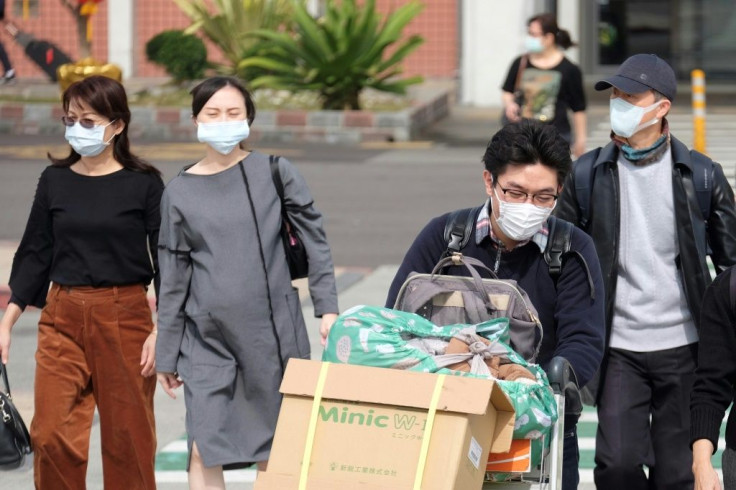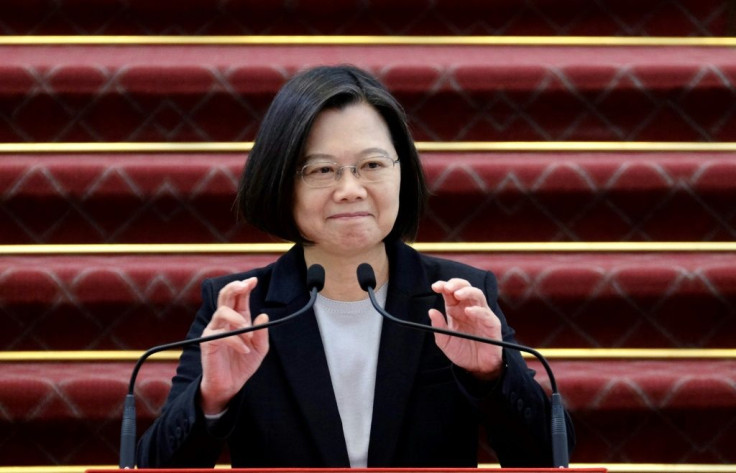Virus Exposes Beijing Campaign To Isolate Taiwan On Global Bodies

The emergence of a deadly new virus in China has ignited fresh anger in neighbouring Taiwan about how the island has been squeezed out of international bodies, including the World Health Organization.
Modern Taiwan has been a de facto sovereign nation for the last seven decades and has emerged as one of Asia's most progressive democracies.
But it is quarantined on the world stage, only recognised diplomatically by a handful of countries and pushed out of crucial global meetings under pressure from Beijing.
That isolation has been thrown into sharp relief by the new SARS-like virus that has emerged in China -- with the first positive case confirmed in Taiwan on Tuesday.
Taiwan has been denied access to the World Health Assembly (WHA) -- the WHO's main meeting -- since 2017 under pressure from Beijing which loathes the island's current president Tsai Ing-wen, who won a landslide second term earlier this month.
At a press conference on Wednesday, Tsai renewed her calls for Taiwan to be allowed to attend WHO meetings and other bodies.
"Political considerations should not surpass protection for the people," she told reporters, adding that the island's 23 million inhabitants face the same health risks and threats as the rest of the world.
"I want to again urge the WHO not to exclude Taiwan for political reasons. Taiwan is on the frontline of global infectious disease prevention. The WHO should have a space for Taiwan's participation," she added.
Beijing views Taiwan as its own territory and has vowed to one day seize it, by force if necessary.
It has ramped up its campaign to isolate the island ever since Tsai's first election victory in 2016 because she does not acknowledge their view that Taiwan is part of "one China".
The headline-grabbing parts of this campaign have involved increased military and economic pressure as well as persuading seven more countries to abandon Taipei diplomatically.
It has also pushed companies to list the island as a province of China rather than a separate territory.
Beijing has also waged a successful campaign to keep Taiwan locked out of global bodies.

Alongside the WHA, Taiwan has been frozen out of the International Civil Aviation Organization, the United Nations agency that covers aviation.
At the UN itself -- which ditched Taiwan in favour of the People's Republic of China in 1971 -- Taiwanese diplomats and journalists are routinely excluded because of their passports.
In December, Axios reported that Taiwanese employees at the World Bank were being told to obtain Chinese travel documents. Axios said the policy was later reversed after their report.
In her comments on Wednesday, Tsai called on China to be "open and transparent" about the new virus outbreak as well as sharing information with Taiwan "fully and accurately".
Most analysts say China has been far more open and quick to share data on the Wuhan outbreak compared to the 2003 SARS outbreak which was covered up for months.
But suspicions still run high in Taiwan because of historical precedent.
The island's ability to fight SARS back in 2003 was hampered by the fact that officials were unable to get crucial data from Beijing and the WHO, media reports at the time show.
"China's responses were slow during the SARS outbreak in terms of investigating the cause and sharing information," Huang Li-min, president of the Infectious Disease Society of Taiwan, told AFP.
"This time China is releasing information more quickly," he added.
Among Taiwanese social media users, there has been anger about the island's continued exclusion from the WHO.
"Give Taiwan a seat at the table," Jessica Drun, an academic, wrote in a Tweet directed at the WHO's account.
© Copyright AFP 2024. All rights reserved.





















